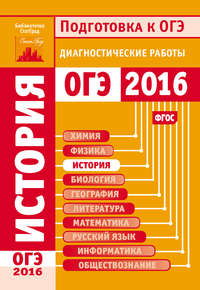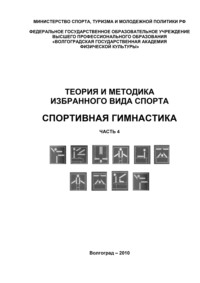
Полная версия
75 лучших рассказов / 75 Best Short Stories
‘Excellent ex-brave! Convivial ancient grenadier! Champagne by all means! An English cheer for an old soldier! Hurrah! hurrah! Another English cheer for the goddess Fortune! Hurrah! hurrah! hurrah!’
‘Bravo! the Englishman; the amiable, gracious Englishman, in whose veins circulates the vivacious blood of France! Another glass? Ah, bah! – the bottle is empty! Never mind! Vive le vin![138] I, the old soldier, order another bottle, and half a pound of bonbons with it!’
‘No, no, ex-brave; never – ancient grenadier![139] Your bottle last time; my bottle this. Behold it! Toast away! The French Army! the great Napoleon! the present company! the croupier! the honest croupier’s wife and daughters – if he has any! the Ladies generally! everybody in the world!’
By the time the second bottle of champagne was emptied, I felt as if I had been drinking liquid fire – my brain seemed all aflame. No excess in wine had ever had this effect on me before in my life. Was it the result of a stimulant acting upon my system when I was in a highly excited state? Was my stomach in a particularly disordered condition? Or was the champagne amazingly strong?
‘Ex-brave of the French Army!’ cried I, in a mad state of exhilaration, ‘I am on fire! how are you? You have set me on fire. Do you hear, my hero of Austerlitz? Let us have a third bottle of champagne to put the flame out!’
The old soldier wagged his head, rolled his goggle-eyes, until I expected to see them slip out of their sockets; placed his dirty forefinger by the side of his broken nose; solemnly ejaculated ‘Coffee!’ and immediately ran off into an inner room.
The word pronounced by the eccentric veteran seemed to have a magical effect on the rest of the company present. With one accord they all rose to depart. Probably they had expected to profit by my intoxication; but finding that my new friend was benevolently bent on preventing me from getting dead drunk, had now abandoned all hope of thriving pleasantly on my winnings. Whatever their motive might be, at any rate they went away in a body. When the old soldier returned, and sat down again opposite to me at the table, we had the room to ourselves. I could see the croupier, in a sort of vestibule which opened out of it, eating his supper in solitude. The silence was now deeper than ever.
A sudden change, too, had come over the ‘ex-brave’. He assumed a portentously solemn look; and when he spoke to me again, his speech was ornamented by no oaths, enforced by no finger-snapping, enlivened by no apostrophes or exclamations.
‘Listen, my dear sir,’ said he, in mysteriously confidential tones – ‘listen to an old soldier’s advice. I have been to the mistress of the house (a very charming woman, with a genius for cookery!) to impress on her the necessity of making us some particularly strong and good coffee. You must drink this coffee in order to get rid of your little amiable exaltation of spirits before you think of going home – you must, my good and gracious friend! With all that money to take home to-night, it is a sacred duty to yourself to have your wits about you. You are known to be a winner to an enormous extent by several gentlemen present to-night, who, in a certain point of view, are very worthy and excellent fellows; but they are mortal men, my dear sir, and they have their amiable weaknesses. Need I say more? Ah, no, no! you understand me! Now, this is what you must do – send for a cabriolet[140] when you feel quite well again – draw up all the windows when you get into it – and tell the driver to take you home only through the large and well-lighted thoroughfares. Do this; and you and your money will be safe. Do this; and to-morrow you will thank an old soldier for giving you a word of honest advice.’
Just as the ex-brave ended his oration in very lachrymose tones, the coffee came in, ready poured out in two cups. My attentive friend handed me one of the cups with a bow. I was parched with thirst, and drank it off at a draught. Almost instantly afterwards, I was seized with a fit of giddiness, and felt more completely intoxicated than ever. The room whirled round and round furiously; the old soldier seemed to be regularly bobbing up and down before me like the piston of a steam-engine. I was half deafened by a violent singing in my ears; a feeling of utter bewilderment, helplessness, idiocy, overcame me. I rose from my chair, holding on by the table to keep my balance; and stammered out that I felt dreadfully unwell – so unwell that I did not know how I was to get home.
‘My dear friend,’ answered the old soldier – and even his voice seemed to be bobbing up and down as he spoke – ‘my dear friend, it would be madness to go home in your state; you would be sure to lose your money; you might be robbed and murdered with the greatest ease. I am going to sleep here; do you sleep here, too – they make up capital beds in this house – take one; sleep off the effects of the wine, and go home safely with your winnings to-morrow – to-morrow, in broad daylight.’
I had but two ideas left: one, that I must never let go hold of my handkerchief full of money; the other, that I must lie down somewhere immediately, and fall off into a comfortable sleep. So I agreed to the proposal about the bed, and took the offered arm of the old soldier, carrying my money with my disengaged hand. Preceded by the croupier, we passed along some passages and up a flight of stairs into the bedroom which I was to occupy. The ex-brave shook me warmly by the hand, proposed that we should breakfast together, and then, followed by the croupier, left me for the night.
I ran to the wash-hand stand; drank some of the water in my jug; poured the rest out, and plunged my face into it; then sat down in a chair and tried to compose myself. I soon felt better. The change for my lungs, from the fetid atmosphere of the gambling-room to the cool air of the apartment I now occupied, the almost equally refreshing change for my eyes, from the glaring gaslights of the ‘salon’ to the dim, quiet flicker of one bedroom candle, aided wonderfully the restorative effects of cold water. The giddiness left me, and I began to feel a little like a reasonable being again. My first thought was of the risk of sleeping all night in a gambling-house; my second, of the still greater risk of trying to get out after the house was closed, and of going home alone at night through the streets of Paris with a large sum of money about me. I had slept in worse places than this on my travels; so I determined to lock, bolt, and barricade my door, and take my chance till the next morning.
Accordingly, I secured myself against all intrusion; looked under the bed, and into the cupboard; tried the fastening of the window; and then, satisfied that I had taken every proper precaution, pulled off my upper clothing, put my light, which was a dim one, on the hearth among a feathery litter of wood-ashes, and got into bed, with the handkerchief full of money under my pillow.
I soon felt not only that I could not go to sleep, but that I could not even close my eyes. I was wide awake, and in a high fever. Every nerve in my body trembled – every one of my senses seemed to be preternaturally sharpened. I tossed and rolled, and tried every kind of position, and perseveringly sought out the cold corners of the bed, and all to no purpose. Now I thrust my arms over the clothes; now I poked them under the clothes; now I violently shot my legs straight out down to the bottom of the bed; now I convulsively coiled them up as near my chin as they would go; now I shook out my crumpled pillow, changed it to the cool side, patted it flat, and lay down quietly on my back; now I fiercely doubled it in two, set it up on end, thrust it against the board of the bed, and tried a sitting posture. Every effort was in vain; I groaned with vexation as I felt that I was in for a sleepless night.
What could I do? I had no book to read. And yet, unless I found out some method of diverting my mind, I felt certain that I was in the condition to imagine all sorts of horrors; to rack my brain with forebodings of every possible and impossible danger; in short, to pass the night in suffering all conceivable varieties of nervous terror.
I raised myself on my elbow, and looked about the room – which was brightened by a lovely moonlight pouring straight through the window – to see if it contained any pictures or ornaments that I could at all clearly distinguish. While my eyes wandered from wall to wall, a remembrance of Le Maistre’s[141] delightful little book, ‘Voyage autour de ma Chambre,’[142] occurred to me. I resolved to imitate the French author, and find occupation and amusement enough to relieve the tedium of my wakefulness, by making a mental inventory of every article of furniture I could see, and by following up to their sources the multitude of associations which even a chair, a table, or a wash-hand stand may be made to call forth.
In the nervous unsettled state of my mind at that moment, I found it much easier to make my inventory than to make my reflections, and thereupon soon gave up all hope of thinking in Le Maistre’s fanciful track – or, indeed, of thinking at all. I looked about the room at the different articles of furniture, and did nothing more.
There was, first, the bed I was lying in; a four-post bed, of all things in the world to meet with in Paris – yes, a thoroughly clumsy British four-poster, with the regular top lined with chintz – the regular fringed valance all round – the regular stifling, unwholesome curtains, which I remembered having mechanically drawn back against the posts without particularly noticing the bed when I first got into the room. Then there was the marble-topped wash-hand stand, from which the water I had spilled, in my hurry to pour it out, was still dripping, slowly and more slowly, on to the brick floor. Then two small chairs, with my coat, waistcoat, and trousers flung on them. Then a large elbow-chair covered with dirty-white dimity, with my cravat and shirt collar thrown over the back. Then a chest of drawers with two of the brass handles off, and a tawdry, broken china inkstand placed on it by way of ornament for the top. Then the dressing-table, adorned by a very small looking-glass, and a very large pincushion. Then the window – an unusually large window. Then a dark old picture, which the feeble candle dimly showed me. It was a picture of a fellow in a high Spanish hat, crowned with a plume of towering feathers. A swarthy, sinister ruffian, looking upward, shading his eyes with his hand, and looking intently upward – it might be at some tall gallows at which he was going to be hanged. At any rate, he had the appearance of thoroughly deserving it.
This picture put a kind of constraint upon me to look upward too – at the top of the bed. It was a gloomy and not an interesting object, and I looked back at the picture. I counted the feathers in the man’s hat – they stood out in relief – three white, two green. I observed the crown of his hat, which was of conical shape, according to the fashion supposed to have been favoured by Guido Fawkes[143]. I wondered what he was looking up at. It couldn’t be at the stars; such a desperado[144] was neither astrologer nor astronomer. It must be at the high gallows, and he was going to be hanged presently. Would the executioner come into possession of his conical crowned hat and plume of feathers? I counted the feathers again – three white, two green.
While I still lingered over this very improving and intellectual employment, my thoughts insensibly began to wander. The moonlight shining into the room reminded me of a certain moonlight night in England – the night after a picnic party in a Welsh valley. Every incident of the drive homeward, through lovely scenery, which the moonlight made lovelier than ever, came back to my remembrance, though I had never given the picnic a thought for years; though, if I had tried to recollect it, I could certainly have recalled little or nothing of that scene long past. Of all the wonderful faculties that help to tell us we are immortal, which speaks the sublime truth more eloquently than memory? Here was I, in a strange house of the most suspicious character, in a situation of uncertainty, and even of peril, which might seem to make the cool exercise of my recollection almost out of the question; nevertheless, remembering, quite involuntarily, places, people, conversations, minute circumstances of every kind, which I had thought forgotten for ever; which I could not possibly have recalled at will, even under the most favourable auspices. And what cause had produced in a moment the whole of this strange, complicated, mysterious effect? Nothing but some rays of moonlight shining in at my bedroom window.
I was still thinking of the picnic – of our merriment on the drive home – of the sentimental young lady who would quote ‘Childe Harold’[145] because it was moonlight. I was absorbed by these past scenes and past amusements, when, in an instant, the thread on which my memories hung snapped asunder; my attention immediately came back to present things more vividly than ever, and I found myself, I neither knew why nor wherefore, looking hard at the picture again.
Looking for what?
Good God! the man had pulled his hat down on his brows! No! the hat itself was gone! Where was the conical crown? Where the feathers – three white, two green? Not there! In place of the hat and feathers, what dusky object was it that now hid his forehead, his eyes, his shading hand?
Was the bed moving?
I turned on my back and looked up. Was I mad? drunk? dreaming? giddy again? or was the top of the bed really moving down – sinking slowly, regularly, silently, horribly, right down throughout the whole of its length and breadth – right down upon me, as I lay underneath?
My blood seemed to stand still. A deadly paralysing coldness stole all over me as I turned my head round on the pillow and determined to test whether the bed-top was really moving or not, by keeping my eye on the man in the picture.
The next look in that direction was enough. The dull, black, frowzy outline of the valance above me was within an inch of being parallel with his waist. I still looked breathlessly. And steadily and slowly – very slowly – I saw the figure, and the line of frame below the figure, vanish, as the valance moved down before it.
I am, constitutionally, anything but timid. I have been on more than one occasion in peril of my life, and have not lost my self-possession for an instant; but when the conviction first settled on my mind that the bed-top was really moving, was steadily and continuously sinking down upon me, I looked up shuddering, helpless, panic-stricken, beneath the hideous machinery for murder, which was advancing closer and closer to suffocate me where I lay.
I looked up, motionless, speechless, breathless. The candle, fully spent, went out; but the moonlight still brightened the room. Down and down, without pausing and without sounding, came the bed-top, and still my panic terror seemed to bind me faster and faster to the mattress on which I lay – down and down it sank, till the dusty odour from the lining of the canopy came stealing into my nostrils.
At that final moment the instinct of self-preservation startled me out of my trance, and I moved at last. There was just room for me to roll myself sideways off the bed. As I dropped noiselessly to the floor, the edge of the murderous canopy touched me on the shoulder.
Without stopping to draw my breath, without wiping the cold sweat from my face, I rose instantly on my knees to watch the bed-top. I was literally spellbound by it. If I had heard footsteps behind me, I could not have turned round; if a means of escape had been miraculously provided for me, I could not have moved to take advantage of it. The whole life in me was, at that moment, concentrated in my eyes.
It descended – the whole canopy, with the fringe round it, came down – down – close down; so close that there was not room now to squeeze my finger between the bed-top and the bed. I felt at the sides, and discovered that what had appeared to me from beneath to be the ordinary light canopy of a four-post bed was in reality a thick, broad mattress, the substance of which was concealed by the valance and its fringe. I looked up and saw the four posts rising hideously bare. In the middle of the bed-top was a huge wooden screw that had evidently worked it down through a hole in the ceiling, just as ordinary presses are worked down on the substance selected for compression. The frightful apparatus moved without making the faintest noise. There had been no creaking as it came down; there was now not the faintest sound from the room above. Amid a dead and awful silence I beheld before me – in the nineteenth century, and in the civilized capital of France – such a machine for secret murder by suffocation as might have existed in the worst days of the Inquisition[146], in the lonely inns among the Harz Mountains[147], in the mysterious tribunals of Westphalia[148]! Still, as I looked on it, I could not move, I could hardly breathe, but I began to recover the power of thinking, and in a moment I discovered the murderous conspiracy framed against me in all its horror.
My cup of coffee had been drugged, and drugged too strongly. I had been saved from being smothered by having taken an overdose of some narcotic. How I had chafed and fretted at the fever-fit which had preserved my life by keeping me awake! How recklessly I had confided myself to the two wretches who had led me into this room, determined, for the sake of my winnings, to kill me in my sleep by the surest and most horrible contrivance for secretly accomplishing my destruction! How many men, winners like me, had slept, as I had proposed to sleep, in that bed, and had never been seen or heard of more! I shuddered at the bare idea of it.
But, ere long, all thought was again suspended by the sight of the murderous canopy moving once more. After it had remained on the bed – as nearly as I could guess – about ten minutes, it began to move up again. The villains who worked it from above evidently believed that their purpose was now accomplished. Slowly and silently, as it had descended, that horrible bed-top rose towards its former place. When it reached the upper extremities of the four posts, it reached the ceiling, too. Neither hole nor screw could be seen; the bed became in appearance an ordinary bed again – the canopy – an ordinary canopy[149] – even to the most suspicious eyes.
Now, for the first time, I was able to move – to rise from my knees – to dress myself in my upper clothing – and to consider of how I should escape. If I betrayed by the smallest noise that the attempt to suffocate me had failed, I was certain to be murdered. Had I made any noise already? I listened intently, looking towards the door.
No! no footsteps in the passage outside – no sound of a tread, light or heavy, in the room above – absolute silence everywhere. Besides locking and bolting my door, I had moved an old wooden chest against it, which I had found under the bed. To remove this chest (my blood ran cold as I thought of what its contents might be!) without making some disturbance was impossible; and, moreover, to think of escaping through the house, now barred up for the night, was sheer insanity. Only one chance was left me – the window. I stole to it on tiptoe.
My bedroom was on the first floor, above an entresol, and looked into a back street. I raised my hand to open the window, knowing that on that action hung, by the merest hairbreadth, my chance of safety. They keep vigilant watch in a house of murder. If any part of the frame cracked, if the hinge creaked, I was a lost man! It must have occupied me at least five minutes, reckoning by time – five hours, reckoning by suspense – to open that window. I succeeded in doing it silently – in doing it with all the dexterity of a house-breaker – and then looked down into the street. To leap the distance beneath me would be almost certain destruction! Next, I looked round at the sides of the house. Down the left side ran a thick water-pipe – it passed close by the outer edge of the window. The moment I saw the pipe I knew I was saved. My breath came and went freely for the first time since I had seen the canopy of the bed moving down upon me!
To some men the means of escape which I had discovered might have seemed difficult and dangerous enough – to me the prospect of slipping down the pipe into the street did not suggest even a thought of peril. I had always been accustomed, by the practice of gymnastics, to keep up my school-boy powers as a daring and expert climber; and knew that my head, hands, and feet would serve me faithfully in any hazards of ascent or descent. I had already got one leg over the window-sill, when I remembered the handkerchief filled with money under my pillow. I could well have afforded to leave it behind me, but I was revengefully determined that the miscreants of the gambling-house should miss their plunder as well as their victim. So I went back to the bed and tied the heavy handkerchief at my back by my cravat[150].
Just as I had made it tight and fixed it in a comfortable place, I thought I heard a sound of breathing outside the door. The chill feeling of horror ran through me again as I listened. No! dead silence still in the passage – I had only heard the night air blowing softly into the room. The next moment I was on the window-sill, and the next I had a firm grip on the water-pipe with my hands and knees.
I slid down into the street easily and quietly, as I thought I should, and immediately set off at the top of my speed to a branch ‘prefecture’ of Police, which I knew was situated in the immediate neighbourhood. A ‘sub-prefect,’ and several picked men among his subordinates, happened to be up, maturing, I believe, some scheme for discovering the perpetrator of a mysterious murder which all Paris was talking of just then. When I began my story, in a breathless hurry and in very bad French, I could see that the sub-prefect suspected me of being a drunken Englishman who had robbed somebody; but he soon altered his opinion as I went on, and before I had anything like concluded, he shoved all the papers before him into a drawer, put on his hat, supplied me with another (for I was bareheaded), ordered a file of soldiers, desired his expert followers to get ready all sorts of tools for breaking open doors and ripping up brick flooring, and took my arm, in the most friendly and familiar manner possible, to lead me with him out of the house. I will venture to say that when the sub-prefect was a little boy, and was taken for the first time to the play, he was not half as much pleased as he was now at the job in prospect for him at the gambling-house!
Away we went through the streets, the sub-prefect cross-examining and congratulating me in the same breath as we marched at the head of our formidable posse comitatus[151]. Sentinels were placed at the back and front of the house the moment we got to it; a tremendous battery of knocks was directed against the door; a light appeared at a window; I was told to conceal myself behind the police; then came more knocks and a cry of ‘Open in the name of the law!’ At that terrible summons bolts and locks gave way before an invisible hand, and the moment after the sub-prefect was in the passage, confronting a waiter half dressed and ghastly pale. This was the short dialogue which immediately took place:
‘We want to see the Englishman who is sleeping in this house.’
‘He went away hours ago.’
‘He did no such thing. His friend went away; he remained. Show us to his bedroom!’
‘I swear to you, Monsieur le Sous-préfet[152], he is not here! He—’
‘I swear to you, Monsieur le GarÇon[153], he is. He slept here; he didn’t find your bed comfortable; he came to us to complain of it; here he is among my men; and here am I ready to look for a flea or two in his bedstead. Renaudin!’ (calling to one of the subordinates, and pointing to the waiter), ‘collar that man, and tie his hands behind him. Now then, gentlemen, let us walk upstairs!’
Every man and woman in the house was secured – the ‘old soldier’ the first. Then I identified the bed in which I had slept, and then we went into the room above.
No object that was at all extraordinary appeared in any part of it. The sub-prefect looked round the place, commanded everybody to be silent, stamped twice on the floor, called for a candle, looked attentively at the spot he had stamped on, and ordered the flooring there to be carefully taken up. This was done in no time. Lights were produced, and we saw a deep raftered cavity between the floor of this room and the ceiling of the room beneath. Through this cavity there ran perpendicularly a sort of case of iron, thickly greased; and inside the case appeared the screw, which communicated with the bed-top below. Extra lengths of screw, freshly oiled; levers covered with felt; all the complete upper works of a heavy press – constructed with infernal ingenuity so as to join the fixtures below, and when taken to pieces again to go into the smallest possible compass – were next discovered and pulled out on the floor. After some little difficulty the sub-prefect succeeded in putting the machinery together, and, leaving his men to work it, descended with me to the bedroom. The smothering canopy was then lowered, but not so noiselessly as I had seen it lowered. When I mentioned this to the sub-prefect, his answer, simple as it was, had a terrible significance. ‘My men,’ said he, ‘are working down the bed-top for the first time; the men whose money you won were in better practice.’














